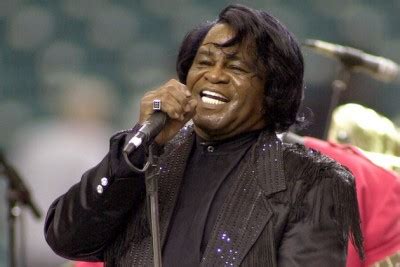A Quote by Gautama Buddha
Surely if living creatures saw the results of all their evil deeds, they would turn away from them in disgust. But selfhood blinds them, and they cling to their obnoxious desires. They crave pleasure for themselves and they cause pain to others; when death destroys their individuality, they find no peace; their thirst for existence abides and their selfhood reappears in new births. Thus they continue to move in the coil and can find no escape from the hell of their own making.
Related Quotes
Read from a distant star, the majuscule script of our earthly existence would perhaps lead to the conclusion that the earth was the distinctively ascetic planet, a nook of disgruntled, arrogant creatures filled with a profound disgust with themselves, at the earth, at all life, who inflict as much pain on themselves as they possibly can out of pleasure in inflicting pain which is probably their only pleasure.
People who have intended and loved what is evil in the world intend and love what is evil in the other life, and then they no longer allow themselves to be led away from it. This is why people who are absorbed in evil are connected to hell and actually are there in spirit; and after death they crave above all to be where their evil is. So after death, it is we, not the Lord, who cast ourselves into hell.
When we find that God's ways always coincide with our own ways, it's time to question who we're really worshipping, God or ourselves. The latter moves the nature of godliness from the King to our servant to a slave, a deduction into the realm of selfhood and then the lower, slavehood. It's a spiritual mathematics in that men who need God in his godhood are humble yet strong and spiritually ambitious while men who need a slave in their selfhood are ultimately paralyzed and will remain paralyzed.
The first thing Islam does is to destroy the self image of the believers. It convinces them that without Islam they are worthless creatures only fit for hellfire. It tells them that their culture is jahelyyah (ignorance) and their ancestral religion was taaghoti (satanic). They are made to despise their identity and selfhood and seek their glory in their submission to Islam and slavery to its deity who was Muhammad's own alter ego.
But when it comes to human beings, the only type of cause that matters is final cause, the purpose. What a person had in mind. Once you understand what people really want, you can't hate them anymore. You can fear them, but you can't hate them, because you can always find the same desires in your own heart.
Integrity requires that I discern what is integral to my selfhood, what fits
and what does not-and that I choose life-giving ways of relating to the forces that converge within me: Do I welcome them or fear them, embrace them or reject them, move with them or against them? By choosing integrity, I become more whole, but wholeness does not mean perfection. It means becoming more real by acknowledging the whole of who I am.
Compassion allows us to use our own pain and the pain of others as a vehicle for connection. This is a delicate and profound path. We may be adverse to seeing our own suffering because it tends to ignite a blaze of self-blame and regret. And we may be adverse to seeing suffering in others because we find it unbearable or distasteful, or we find it threatening to our own happiness. All of these possible reactions to the suffering in the word make us want to turn away from life.
Self-acceptance comes from meeting life's challenges vigorously. Don't numb yourself to your trials and difficulties, nor build mental walls to exclude pain from your life. You will find peace not by trying to escape your problems, but by confronting them courageously. You will find peace not in denial, but in victory.
The evil which assails us is not in the localities we inhabit but in ourselves. We lack strength to endure the least task, being incapable of suffering pain, powerless to enjoy pleasure, impatient with everything. How many invoke death when, after having tried every sort of change, they find themselves reverting to the same sensations, unable to discover any new experience.
There are some who live by every rule and cling tightly to their rectitude because they fear being swept away by a tempest of passion, and there are others who cling to the rules because they fear that there is no passion there at all, and that if they let go they would simply remain where they are, foolish and unmoved; and they could bear that least of all. Living a life of iron control lets them pretend to themselves that only by the mightiest effort of will can they hold great passions at bay.































